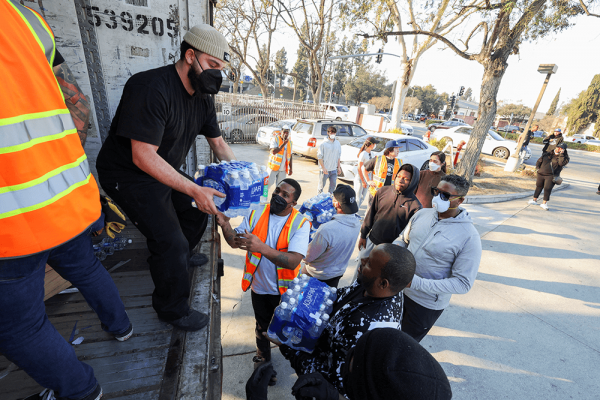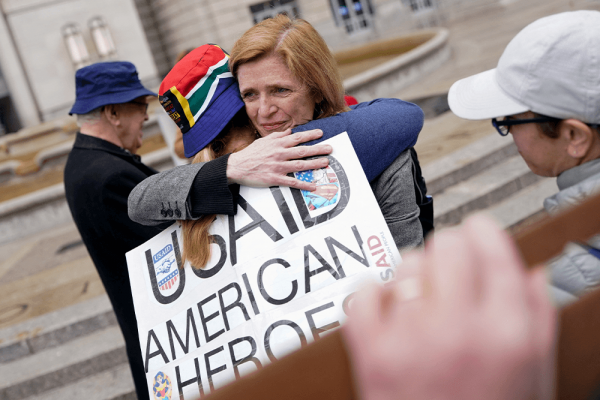Religious fundamentalists in Brazil have been challenging the rules of isolation imposed by the governors of several states. And, since mid-April, when the number of infections started escalating, several cities have been allowing religious temples to resume services. In April, evangelical pastors even staged a demonstration in Campo Grande, capital of the state of Mato Grosso, to demand the reopening of temples.
In Manaus, one of cities worst hit by the pandemic, with hospitals above capacity and a shortage of coffins, city councillors voted to reopen religious temples on May 6. In some cities, pastors have even taken to the streets to demand reopening.
At the moment, Brazil has the third-most cases of any country in the world and ranks sixth-most in terms of deaths. It is facing the pandemic amid an open conflict between the federal government led by extreme-right President Jair Bolsonaro, who has dismissively called the disease a "little flu," and governors of several states have been trying to impose measures to slow the advance of coronavirus.
In this dispute, many evangelical pastors — which includes televangelists and leaders of the largest Pentecostal and neo-Pentecostal denominations — have positioned themselves with Brazil’s president.
Leaders like the multi-millionaire pastor Valdemiro Santiago, of the World Church of the Power of God, sells false cures for COVID-19, such as a blessed bean seed for R$1000 reais ($175 dollars). This figure is almost double the emergency aid offered by the Brazilian government of R$600 reais.
The federal prosecutor’s office asked YouTube to remove the video in which Valdemiro Santiago defends the sacred beans as the cure for COVID-19 and opened an investigation into the pastor for larceny.
Other leaders like Pastor Silas Malafaia, of the Assembly of God Victory in Christ, posted videos on his social media arguing that the solution for COVID-19 would be to sanitize public transportation, streets, and avenues. Still in April, when the governor of São Paulo, João Dória, decreed the extension of the quarantine in the state, the website of the Universal Church of the Kingdom of God announced that "you are free to go to the temple ... the altar is not in quarantine," a clear challenge to the rules of social distancing.
The rush of evangelical leaders to seek miraculous solutions in order to reopen their churches is partially explained by their need for tithes. Some pastors complain that they have lost 90 percent in collections.
Altino Machado, a journalist who covers news from the Acre, the Brazilian state with the most evangelicals in the country, explained: “Pastors are desperate for the tithing, the R$600 reals that the government has distributed to the population. Part of that money, [they expect] the faithful have to give to the churches.”
There are two motivations in reopening churches, explained theologian and Protestant pastor Ricardo Gondim of Betesda Church. First, there’s a “pure and simple financial [reason] and second, COVID-19 puts in check the whole discourse of prosperity, protection, and security that the neo-Pentecostals insisted on for years.”
“To admit that believers are subject to the same contingencies as everyone is to admit the failure of their theology. Therefore, by ‘challenging’ COVID-19, they try to show that they are really differentiated,” Gondim added.
Not only a luck of funds is to blame for the attempt by pastors to quickly reopen their churches, “but also the sense of belonging and usefulness of the pastors,” said Baptist Pastor Guilherme Burjack. He added that this is true for larger churches, whereas “in the smaller ones, the affective relationship does not necessarily go through the temple, the pastors are already part of the community.”
Another important factor is the “fear of the imposition of the State on the church, of having the doors closed by the government,” says Burjack.
For social scientist and religious podcaster at Teolabcast, Leonardo Rossatto, the experiential dynamics of Pentecostals and neo-Pentecostals, the face-to-face coexistence and communion, are fundamental elements to explain the insistence on the reopening of the temples.
"It is not possible to repeat the same sensory experience at a distance, it does not bring the same sensation to the faithful. Also, pastors are afraid of the demobilization if the faithful are not immersed in communion and worship environment," he explained.
There are also political reasons.
For Baptist Pastor Levi Araújo, “with the spiritualization of science denialism, many pastors would not hesitate to put the lives of church members at risk because of the financial gain and also for the blind and inconsequential support of the president of the Republic who minimizes, relativizes, and disqualifies the guidance of scientists, the Health Organization and health professionals.”
In fact, several evangelical leaders complained in a manifesto, released to the press on May 4, of the "deification of science" during the pandemic.
A considerable part of the support for far-right President Jair Bolsonaro comes from his evangelical base, which ended up being graced with positions in ministries and wide prominence in the making of social policies. Many people have wondered if Brazil is lurching toward becoming an evangelical theocracy.
“The evangelicals were decisive for the election of Bolsonaro and are fundamental to his popular support base,” said Araújo.
But for Pastor Burjack, it is difficult to speak of a crack in support because not all evangelicals have necessarily been united politically. He explained that “the evangelical world has multiple dimensions, there is freedom of thought, it is the individual who decides, the divine judgment is not collective.” Yet, he added, “there is an internal polarization within the denominations themselves and between different denominations” due to the support or opposition to Bolsonaro.
“The heavyweight pastors are always at the government's side, they're like flies in the bakery, no matter what kind of candy you put on the counter, they're always circulating around it,” said Burjack.
Not surprisingly, the main Brazilian televangelists, such as Pastors Silas Malafaia and Edir Macedo, of the Universal Church of the Kingdom of God, the largest evangelical denomination in Brazil, were allies of former president Lula da Silva and his successor, Dilma Rousseff, both center-left and of the Worker’s Party, but are now allies of far-right president Jair Bolsonaro.
As Rossatto explained, it is possible to observe a conservative turn within the evangelical church, “especially from 2010 onwards, with pastors accusing the then president Dilma Rousseff of being in favor of abortion.”
For Burjack, however, such a turn actually makes sense: “The relationship [of evangelical pastors] is not with Bolsonaro, but with power.”
Even while putting the lives of thousands, or even millions, of their faithful at risk, several pastors continue to speak out against the rules of social distancing and call on their followers to do the same. They’re pressuring the authorities to allow the reopening of temples amid an unprecedented crisis. The consequences can already be seen with the exponential increase of cases and deaths in Brazil, placing the country as one of the top hot spots of the virus.
Got something to say about what you're reading? We value your feedback!






